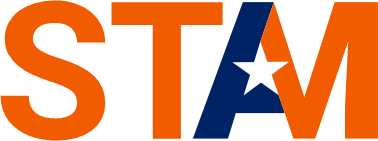In today’s ever-evolving job market, finding a career that offers stability, growth, and a sense of purpose is crucial. If you’re someone who values national security, public safety, and contributing to the greater good, a career with the Transportation Security Administration (TSA) might be the perfect fit for you. In this blog post, we’ll explore the world of TSA jobs, shedding light on the opportunities, requirements, and the unique aspects of working in this essential government agency.
Section 1: Understanding the TSA
The Transportation Security Administration (TSA) is a vital component of the U.S. Department of Homeland Security, responsible for ensuring the security of the nation’s transportation systems. Created in response to the 9/11 attacks, the TSA plays a critical role in safeguarding air travel and other modes of transportation.
Section 2: Why Work for TSA?
2.1 Job Stability and Benefits:
- Explore the stability and benefits that come with a career in TSA, including competitive salaries, health insurance, retirement plans, and more.
- Highlight the sense of pride and purpose that comes from contributing to national security.
2.2 Diverse Career Paths:
- Delve into the diverse range of job opportunities within the TSA, from airport security to intelligence analysis, canine handling, and management roles.
- Discuss the potential for career growth and advancement within the organization.
Section 3: Types of TSA Jobs
3.1 Transportation Security Officer (TSO):
- Provide an in-depth look at the role of a TSO, detailing responsibilities, qualifications, and the training process.
- Address misconceptions and highlight the significance of TSOs in ensuring safe air travel.
3.2 Federal Air Marshal:
- Explore the covert world of Federal Air Marshals, responsible for preventing and responding to in-flight security threats.
- Discuss the specialized training and skills required for this unique position.
3.3 Intelligence Analyst:
- Examine the role of intelligence analysts within TSA, focusing on their contribution to threat assessment and risk management.
- Highlight the educational background and skills necessary for success in this field.
Section 4: How to Apply for TSA Jobs
4.1 Eligibility Requirements:
- Outline the basic eligibility criteria for TSA positions, including citizenship, age, and criminal background checks.
- Provide insights into the physical and medical requirements for specific roles.
4.2 Application Process:
- Walk readers through the TSA job application process, from creating an account on USAJOBS to submitting a comprehensive application.
- Offer tips for crafting a standout resume and cover letter tailored to TSA positions.
Section 5: Interview Tips and Preparation
5.1 Common Interview Questions:
- List and explain typical interview questions for TSA jobs, helping candidates prepare effectively.
- Provide guidance on showcasing relevant skills and experiences during the interview.
5.2 Preparing for the Behavioral Assessment:
- Discuss the importance of the Behavioral Assessment and offer strategies for successful completion.
- Share insights into the competencies TSA assesses during this stage of the hiring process.
Conclusion:
Embarking on a career with the TSA opens doors to meaningful work, personal development, and the opportunity to make a real impact on national security. Whether you’re a recent graduate, a seasoned professional, or someone seeking a change, consider the numerous TSA job opportunities available and take the first step toward a fulfilling and rewarding career. Explore the possibilities, meet the challenges, and become a crucial part of the team dedicated to ensuring the safety of our nation’s transportation systems.
